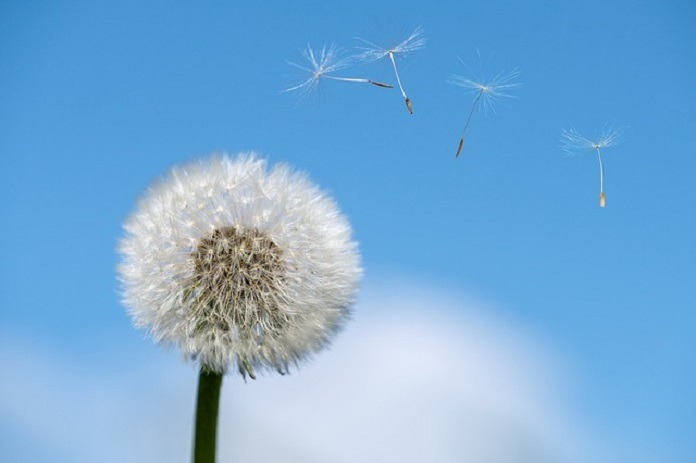Allergies are a condition caused by the body’s response to foreign organisms. An allergy starts when an individual’s immune system identifies harmless organisms as threats. The body responds to that allergen by releasing histamines and other chemicals into the bloodstream. These chemicals produce the symptoms of an allergic reaction.
Allergic reactions are normally caused by a combination of genetic and environmental factors. Environmental factors that can increase the risk of developing allergies include repeated exposure to foreign substances, diet, and pollutants (such as tobacco smoke and exhaust fumes).
Seasonal allergies, also known as allergic rhinitis or hay fever, affects 3 out of 10 people. They are extremely common in the summer months and symptoms can range from mild to severe. According to the Asthma and Allergy Foundation of America, grasses are the most common trigger for people with hay fever. Pollen from grass reaches moderate to high levels in summer. Millions of people experience seasonal allergies triggered by airborne pollen.1
Risk factors for developing hay fever include having other allergies or asthma, having eczema, and a family history of allergies.
The top 6 summer allergy symptoms include:
1. Sneezing
Sneezing is the body’s way of removing irritants from the nose or throat. Severe sneezing attacks are common when the pollen count is high.
2. Runny or stuffy nose
People suffering from summer allergies can experience stuffiness and irritation in the nose, making it difficult to breathe through the nose. The nasal discharge from hay fever is normally thin, clear, and watery. A blocked or runny rose can lead to a reduced sense of smell or taste, difficulties in sleeping, drowsiness, irritability, and concentration problems.
3. Itchy or watery eyes
Itchy, watery, and red eyes are symptoms of allergic conjunctivitis. The eyes are a frequent target for allergens and irritants since they are exposed and sensitive.2
4. Itchy sinuses, throat, or ear canals
The nose, ears, and throat are all connected, which means that allergens can travel between them. The sinuses can become stuffy and potentially cause headaches and occasional sinus infections.
5. Ear congestion
The Eustachian tube, which connects the back of the nose to the middle ear, can become filled with fluid and infected. The main symptoms of ear infection include earache, slight hearing loss, a high temperature, and lack of energy.
6. Postnasal drainage
Postnasal drainage or drip refers to the sensation of mucus running down the back of your throat. Postnasal drip is an extremely common cause of a persistent cough, sore throat, and hoarseness.
Less common symptoms include fatigue, headaches, shortness of breath, coughing, and wheezing. A third of patients with hay fever report wheeziness.3 Summer allergy symptoms can interfere with quality of life, sleep, energy levels, and productivity.
Treating summer allergy symptoms
Allergic reactions are first diagnosed using a doctor’s evaluation, blood tests, and skin tests. Seasonal allergies can be treated using:
- Antihistamines
- Corticosteroid nasal sprays
- Decongestants
- Anti-inflammatory eye drops
Antihistamines are the most common over-the-counter medication used to relieve allergy symptoms. Taking antihistamines can help to alleviate watery eyes, runny nose, and itching. However, they can cause side effects, including drowsiness, dry mouth, blurred vision, constipation, difficulty with urination, confusion, and drowsiness.
Managing symptoms during the summer allergy season
The best way to prevent summer allergy symptoms is to avoid allergy triggers. Actions you can take to reduce seasonal allergy symptoms include4:
- Reducing pollen exposure by staying indoors when possible
- Trying not to open windows and using air conditioning instead
- Washing your bedding in hot water and detergent once a week to reduce allergens
- Regularly cleaning and vacuuming your house
- Wearing sunglasses and a hat when you are outside to keep pollen out of your eyes and hair
- Showering, washing your hair, and changing clothes after going outside
- Taking allergy medication
If symptoms are severe, the allergen cannot be avoided, and other treatments are ineffective, allergen immunotherapy may be recommended by your doctor for desensitization. This works by injecting the body with small doses of allergens over a couple of years to build resistance to these allergens. It is important to see a doctor if you are affected by summer allergy symptoms as it is better to seek treatment before symptoms get worse.
References:
1. Schmidt C. (2016). Pollen overload: seasonal allergies in a changing climate. Environ Health Perspect, 124(4), 70-75. Retrieved from: https://www.ncbi.nlm.nih.gov/pmc/articles/PMC4829390/
2. Eye allergies (allergic conjunctivitis). (2015). Asthma and Allergy Foundation of America. Retrieved from: https://www.aafa.org/eye-allergy-conjunctivitis/
3. Ross A and Fleming D. (2004). Hayfever – practical management issues. BJGP, 54(503), 412-414. Retrieved from: https://www.ncbi.nlm.nih.gov/pmc/articles/PMC1266197/
4. Pollen allergy (2015). Asthma and Allergy Foundation of America. Retrieved from: https://www.aafa.org/pollen-allergy/
Image by Bruno /Germany from Pixabay



